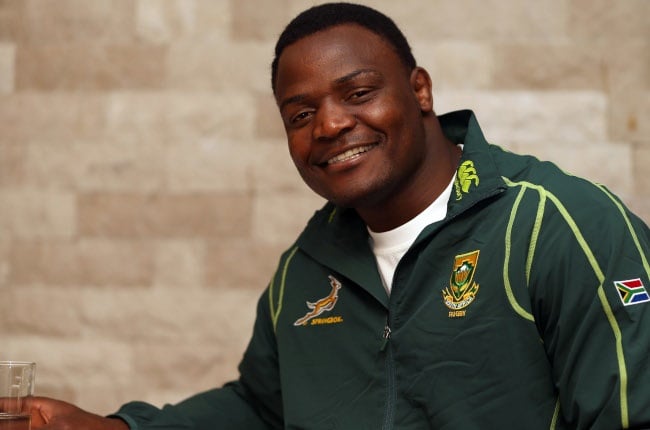


Chiliboy Ralepelle (Photo by Steve Haag/Gallo Images/Getty Images)
- Former Springbok hooker Chiliboy Ralepelle was banned for eight years in June after an anabolic steroid, Zeranol, was found in his system last year.
- The former Sharks player claims, in a 16-page appeal document, the doping control officer (DCO) who took his sample made multiple errors that could have materially influenced the positive test.
- The tribunal that found Ralepelle guilty told him the DCO need not have informed him of his rights prior to testing because “of his prior testing history”.
Former Springbok hooker Chiliboy Ralepelle’s appeal of the eight-year doping he received last month hinges on numerous errors alleged to have been committed by the doping control officer (DCO), Sport24 can reveal.
Ralepelle was banned for eight years last month after he was found guilty by an independent doping tribunal, almost 18 months after he tested positive for a banned anabolic steroid, Zeranol.
The 33-year-old, who was playing for the Sharks at the time, claimed, in appeal documents seen by Sport24, he did not even know the substance existed before his 17 January 2019 test came back positive.
In the 16-page appeal document Ralepelle claimed that:
– The DCO lied in their testimony during the hearing as to how the sample collection process unfolded and the irregularities therein.
However, Ralepelle faces an uphill battle trying to prove “ignorance” with regards to the partial sample and Zeranol as well as flouted doping control collections rules and alleged false DCO testimony are enough to show they had a material effect on the eventual adverse finding.
The South African Institute for Drug-free Sport’s (Saids) policy, which is in line with the World Doping Agency’s, places “the burden of proof upon the athlete that he or she did not act intentionally … and that the athlete has to either rebut a presumption or establish specified facts or circumstances ‘by a balance of probability’ – which means that the circumstances established by the athlete have to be ‘more likely than not'”.
Last month, Ralepelle told Sport24: “The DCO lied in front of the tribunal and there were a lot of discrepancies along the line. Because I signed the documentation after the test, they are going back to that paper.”
Ralepelle, who has tested positive for a prohibited substance twice before, said in the appeal notice filed to Saids he never considered taking a banned substance because he was being tested regularly (as a result of the two previous findings), an assertion the panel dismissed outright.
It is extremely rare that athletes who have tested positive and found guilty have successfully had their convictions overturned. If Ralepelle fails in his appeal, it would mark the end of the former Springbok’s once-promising career.

